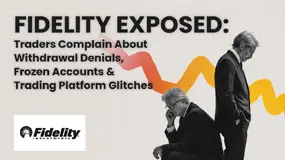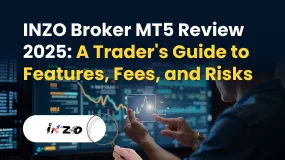简体中文
繁體中文
English
Pусский
日本語
ภาษาไทย
Tiếng Việt
Bahasa Indonesia
Español
हिन्दी
Filippiiniläinen
Français
Deutsch
Português
Türkçe
한국어
العربية
eToro CopyTrader Expands to U.S. Investors
Abstract:eToro launches CopyTrader for U.S. stocks, ETFs, and crypto, pairing social trading with APIs and an app ecosystem under tighter oversight

eToro has switched on CopyTrader for U.S. clients, extending its signature social-mirroring tool from crypto into stocks and ETFs under a regulated brokerage umbrella. The expansion, unveiled at the company‘s Investor Summit, marks eToro’s broadest U.S. move since gaining nationwide brokerage status in 2024 and positions the platform against retail rivals that do not offer direct portfolio replication. Alongside the launch, eToro introduced public APIs and outlined plans for a curated app marketplace, signaling a developer-first strategy around analytics and portfolio extensions that tie directly into core trading flows.
Whats New For U.S. Traders
- CopyTrader now supports real-time, proportional mirroring across equities, ETFs, and crypto, transforming high-profile users into portfolio templates for followers within eToros brokerage rails.
- The feature arrives with public APIs and a forthcoming App Store built on the firms proprietary “vibe” tooling, enabling third parties to ship analytics, screening, and risk tools subject to review before publication.
- eToros no-management-fee pitch remains, but users still face market frictions such as spreads, slippage, and liquidity constraints common to retail execution, now routed through an expanded U.S. brokerage stack.
Why It Matters For Brokers
- The U.S. debut of CopyTrader separates eToro from retail peers like Robinhood, Webull, and Public.com that lack native portfolio mirroring, adding a social layer built around identity, discovery, and execution in a single venue.
- Each copied trade reinforces order flow and retention as activity aggregates around popular leaders, echoing network effects previously observed across eToros European user base.
- By opening APIs and pre-vetting third‑party apps, eToro aims to balance speed and safety, cultivating a modular ecosystem without outsourcing risk controls over lead traders and followers.
Regulatory Backdrop
- In some markets, automatic copying is treated as discretionary management, triggering fiduciary obligations and enhanced disclosures—a stance already articulated by the FCA and ESMA in Europe.
- U.S. agencies have not issued equivalent, prescriptive guidance specific to equity copy trading, but the SEC and FINRA are expected to scrutinize governance, conflicts, and controls tied to leader incentives and follower outcomes.
- eToro previously resolved a 2024 SEC matter related to crypto and later tightened oversight, securing FINRA broker‑dealer status and SIPC membership before broadening its offering for U.S. users.

Competitive Position
- CopyTrader‘s U.S. arrival formalizes eToro’s social-trading differentiation, unifying discovery and execution while turning skilled users into micro‑managers with transparent, replicable books.
- The fee model rewards popular traders based on follower counts, fueling engagement but raising concerns about performance chasing that global standard‑setters flagged last year, underscoring the need for data‑rich disclosures and risk framing.
- If adoption scales without enforcement shocks, eToro could become the first global brokerage to fuse social replication with mainstream market access at multi‑asset breadth in the U.S.
Product Mechanics
- Followers allocate capital proportionally; new trades and rebalances flow in real time, with execution routed through eToro, binding social signals to brokerage infrastructure.
- The company highlights transparency while warning of trading frictions that persist regardless of management fees, including spread costs, liquidity constraints, and potential slippage in fast markets.
- The planned app marketplace is designed to extend on‑platform research, from leader analytics to risk overlays, with review gates intended to prevent tool‑driven overreach or opaque methodologies.
Market Context
- eToros roots trace to 2007, when OpenBook and CopyTrader pushed social trading into Europe, enabling users to mirror top performers in real time as a core product identity.
- A 2019 U.S. entry allowed Americans to follow crypto traders but not equities, constrained by a patchwork of state and federal rules that limited replication beyond digital assets.
- After shelving a 2021 SPAC path, eToro listed on Nasdaq in May 2025 under ticker ETOR, providing new visibility into revenue and profitability while inviting closer analysis of how social replication interacts with securities law.
Risk Lens For Followers
- Copy trading concentrates behavioral risk: leader incentives, follower herding, and momentum bias can amplify drawdowns, especially if leader strategies are volatile or thinly traded.
- International regulators have warned that popularity‑linked fees may skew behavior toward short‑term performance, making standardized, comparable metrics and drawdown histories vital for informed copying.
- U.S. oversight will likely prioritize suitability filters, conflict disclosures, and controls on promotional claims by top traders whose portfolios attract large follower flows.
Developer Ecosystem
- Public APIs invite firms and independent developers to build plug‑ins for screening, risk budgets, and analytics that sit natively in the trading workflow, with eToro handling vetting before distribution.
- The approach seeks to keep innovation on‑platform while reducing data‑leakage and fragmented toolchains, a recurring pain point for retail traders who juggle off‑platform apps and browser extensions.
- If executed well, the marketplace can deepen stickiness and differentiate eToros multi‑asset stack from one‑app brokers by pairing social signals with modular analysis in a supervised environment.
What To Watch Next
- Clarity from the SEC and FINRA on when automated copying crosses into discretionary advisory activity—and how fiduciary standards should apply in a social context.
- Adoption curves among U.S. equity and ETF traders versus legacy crypto followers, including retention, turnover, and dispersion between leader performance and follower outcomes after costs.
- The cadence and criteria of app approvals, especially for tools that influence allocation, risk scaling, or the presentation of leaderboard metrics that could drive herd behavior.
If CopyTraders U.S. rollout sustains growth without regulatory setbacks, eToro could set the template for social investing at scale—linking identity, analytics, and execution under one regulated roof for multi‑asset retail portfolios.

Disclaimer:
The views in this article only represent the author's personal views, and do not constitute investment advice on this platform. This platform does not guarantee the accuracy, completeness and timeliness of the information in the article, and will not be liable for any loss caused by the use of or reliance on the information in the article.
Read more

Fidelity Exposed: Traders Complain About Withdrawal Denials, Frozen Accounts & Platform Glitches
Does Fidelity Investments prevent you from accessing funds despite numerous assurances on your requests? Do you witness an account freeze by the US-based forex broker every time you request withdrawal access? Do you struggle with an unstable trading platform here? Is the slow Fidelity customer service making you face forced liquidation? These issues haunt traders, with many of them voicing their frustration on several broker review platforms such as WikiFX. In this Fidelity review article, we have shared quite a few complaints for you to look at. Read on!

Exposing The Trading Pit: Traders Blame the Broker for Unfair Withdrawal Denials & Account Blocks
Did you receive contradictory emails from The Trading Pit, with one approving payout and another rejecting it, citing trading rule violations? Did you purchase multiple trading accounts but receive a payout on only one of them? Did The Trading Pit prop firm refund you for the remaining accounts without clear reasoning? Did you face account bans despite using limited margins and keeping investment risks to a minimum? These are some raging complaints found under The Trading Pit review. We will share some of these complaints in this article. Take a look.

M&G Review: Traders Report Fund Scams, Misleading Market Info & False Return Promises
Applying for multiple withdrawals at M&G Investments but not getting it into your bank account? Do you see the uncredited withdrawal funds out of your forex trading account on the M&G login? Does the customer support service fail to address this trading issue? Does the misleading market information provided on this forex broker’s trading platform make you lose all your invested capital? Were you lured into investing under the promise of guaranteed forex returns? These issues have become highly common for traders at M&G Investments. In this M&G review article, we have echoed investor sentiments through their complaint screenshots. Take a look!

INZO Broker MT5 Review 2025: A Trader's Guide to Features, Fees and Risks
INZO is a foreign exchange (Forex) and Contracts for Difference (CFD) brokerage company that started working in 2021. The company is registered in Saint Vincent and the Grenadines and regulated offshore. It focuses on serving clients around the world by giving them access to popular trading platforms, especially MetaTrader 5 (MT5) and cTrader. The company offers different types of trading instruments, from currency pairs to cryptocurrencies. It aims to help both new and experienced traders. Read on to know more about it.
WikiFX Broker
Latest News
Forex Expert Recruitment Event – Sharing Insights, Building Rewards
Admirals Cancels UAE License as Part of Global Restructuring
Moomoo Singapore Opens Investor Boutiques to Strengthen Community
OmegaPro Review: Traders Flood Comment Sections with Withdrawal Denials & Scam Complaints
An Unbiased Review of INZO Broker for Indian Traders: What You Must Know
BotBro’s “30% Return” Scheme Raises New Red Flags Amid Ongoing Fraud Allegations
The 5%ers Review: Is it a Scam or Legit? Find Out from These Trader Comments
WikiEXPO Dubai 2025 Concludes Successfully — Shaping a Transparent, Innovative Future
2 Malaysians Arrested in $1 Million Gold Scam Impersonating Singapore Officials
Is FXPesa Regulated? Real User Reviews & Regulation Check
Currency Calculator



